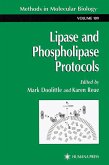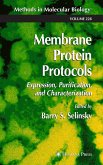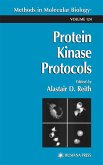As a scientist with an interest in proteins you will, at some time in your career, isolate an enzyme that turns out to be yellow-or perhaps you already have. Alternatively, you may identify a polypeptide sequence that is related to known flavin-containing proteins. This may, or may not, be your first encounter with flavoproteins. However, even if you are an old hand in the field, you may not have exploited the full range of experimental approaches applicable to the study of flavoproteins. We hope that Flavoprotein Protocols will encourage you to do so. In this volume we have sought to bring together a range of experimental methods of value to researchers with an interest in flavoproteins, whether or not these researchers have experience in this area. A broad range of techniques, from the everyday to the more specialized, is described by scientists who are experts in their fields and who have ext- sive practical experience with flavoproteins. The wide range of approaches, from wet chemistry to dry computation, has, as a consequence, demanded a range of formats. Where appropriate (particularly for analytical methods) the protocol described is laid out in easy-to-follow steps. In other cases (e. g. , the more advanced spectroscopies and computational methods) it is far more apt to describe the general approach and relevance of the methods. We hope this wide-ranging approach will sow the seeds of many future collaborations - tween laboratories and further our knowledge and understanding of how f- voproteins work.
Dieser Download kann aus rechtlichen Gründen nur mit Rechnungsadresse in A, B, BG, CY, CZ, D, DK, EW, E, FIN, F, GR, HR, H, IRL, I, LT, L, LR, M, NL, PL, P, R, S, SLO, SK ausgeliefert werden.









